10 Essential Vitamins Women Should Take Everyday
From the spirited vibrancy of youth to the seasoned wisdom of maturity and juggling the intricate dance between personal life and professional pursuits, a woman’s journey is a kaleidoscope of experiences. And only nutrition from the diet may not support your rollercoaster journey altogether.
So, what do you need? Vitamins – of course. But what vitamins should I take daily for a woman?
Let’s explore the vitamins and minerals crucial for women that they may not get fully through their diet alone.
What Vitamins Should I Take Daily For A Woman?
Women have unique nutritional requirements – from nurturing the potential for new life to fortifying bones, balancing hormones, and sustaining heart and brain health. A well-balanced diet is essential, but some women may require supplements due to specific life stages or dietary restrictions.
Thus, women’s need for essential vitamins goes beyond mere supplementation—it’s a foundational aspect of holistic well-being.
Here are the vital vitamins and minerals that women should take daily and why they are important.
Vitamin A
Vitamin A, often hailed as the “beauty vitamin,” is a powerhouse nutrient with numerous crucial functions. From supporting vision to fostering immune health and contributing to overall well-being, the benefit of vitamin A is immense.
Why Do Women Need Vitamin A?
Vitamin A is crucial for women due to its multiple health benefits.
- Eye Health: Vitamin A is crucial for eye health. Its deficiency can cause vision problems like night blindness. Vitamin A helps the cornea, produces pigments for the retina, and nourishes other eye parts while keeping them lubricated.
- Reproductive Health: Vitamin A helps maintain a healthy reproductive system in women and ensures proper growth and development of embryos during pregnancy. A deficiency in vitamin A can lead to a range of reproductive outcomes, including infertility.
- Bone Health: Vitamin A supports healthy bones and protects them from osteoporosis by influencing bone-building and bone-breaking down cells.
- Immune Function: Vitamin A boosts immunity by supporting white blood cells and mucus membranes in the lungs, intestines, and urinary tract. It helps fight infections and toxins that cause inflammation and disease.
- Cancer Prevention: Some studies suggest that a higher intake of vitamin A may decrease the risk of certain cancers – cervical, lung, bladder, etc. However, more research is needed in this area.
The Recommended Dosage
The recommended daily amount of vitamin A for adult women is 700 micrograms (mcg). But it may vary, so always consult your doctor first.
Here’s the table for the recommended daily intake of Vitamin A for women at different ages and phases.
| Age | Female | Pregnancy | Lactation |
| 1–3 years | 300 mcg RAE | – | – |
| 4–8 years | 400 mcg RAE | – | – |
| 9–13 years | 600 mcg RAE | – | – |
| 14–18 years | 700 mcg RAE | 750 mcg RAE | 1,200 mcg RAE |
| 19–50 years | 700 mcg RAE | 770 mcg RAE | 1,300 mcg RAE |
| 51+ years | 700 mcg RAE | – | – |
B Vitamins
B vitamins are essential for women’s health as they support various bodily functions, hormone regulation, and overall well-being.
Why Do Women Need B Vitamins?
- Vitamin B1 (Thiamine): Supports appetite, proper nerve function, hormones and cholesterol production, cardiovascular health, and muscle tone
- Vitamin B2 (Riboflavin): Maintains the balance of calcium in blood and bones, supports red blood cell production, and prevents anemia
- Vitamin B3 (Niacin): Helps with energy production, supports the nervous system, and reduces the risk of cardiovascular disease.
- Vitamin B5 (Pantothenic Acid): Supports the nervous system, skin health, and energy production
- Vitamin B6 (Pyridoxine): Involved in hormone regulation, red blood cell production, and the function of the nervous system
- Vitamin B7 (Biotin): Supports the nervous system, skin health, and energy production
- Vitamin B9 (Folate): Essential for the production of red blood cells, DNA synthesis, and the function of the nervous system
- Vitamin B12 (Cobalamin): Maintains nerve function, supports red blood cell production, and prevents anemia
The Recommended Dosage
Women’s recommended daily intake of B-complex vitamins varies depending on the specific B vitamin.
| Vitamin | Recommended Daily Intake |
| B1 (Thiamine) | 1.1 mg |
| B2 (Riboflavin) | 1.1 mg |
| B3 (Niacin) | 14 mg |
| B5 (Pantothenic Acid) | 5 mg |
| B6 (Pyridoxine) | 1.3 mg |
| B7 (Biotin) | 30 mcg |
| B9 (Folate) | 400 mcg |
| B12 (Cobalamin) | 2.4 mcg |
Vitamin C
Vitamin C, or ascorbic acid, is an antioxidant that helps protect cells from damage and is necessary for the growth, development, and repair of body tissues. It’s abundant in fruits and vegetables like oranges, strawberries, bell peppers, and broccoli. You can also take supplements.
Vitamin C deficiency can lead to scurvy, which can cause anemia and gum disease.
Why Do Women Need Vitamin C?
Vitamin C is crucial for women due to its various health benefits, including-
- Immune System Support: Vitamin C strengthens the immune system and helps the body’s natural defenses fight inflammation, reducing the risk of chronic diseases
- Antioxidant Properties: As a powerful antioxidant, vitamin C protects cells against the effects of free radicals, which can cause oxidative stress and lead to chronic diseases. It also helps decrease stress levels.
- Iron Absorption: Vitamin C improves the absorption of non-heme iron, found in plant foods such as leafy greens, and may help prevent iron deficiency anemia.
- Cardiovascular Health: Some studies suggest vitamin C may lower blood pressure and reduce the risk of heart disease.
- Skin Health: Vitamin C fights free radicals, reduces inflammation, and helps produce collagen to keep skin firm and healthy.
The Recommended Dosage
The recommended daily dosage of vitamin C for adult women is 75 milligrams (mg). But it may vary depending on your age and health condition.
| Age | Female | Pregnancy | Lactation |
| 1–3 years | 15 mg | – | – |
| 4–8 years | 25 mg | – | – |
| 9–13 years | 45 mg | – | – |
| 14–18 years | 65 mg | 80 mg | 115 mg |
| 19+ years | 75 mg | 85 mg | 120 mg |
Vitamin D
Do you know vitamin D is super crucial for you ladies? It has many benefits, like keeping your bones and muscles healthy, preventing diseases, and supporting a healthy pregnancy. If you don’t get enough vitamin D, it could cause unpleasant symptoms like bone pain and muscle weakness.
You can get it from the sun or delicious foods like fatty fish such as trout and salmon, fortified dairy products, yummy egg yolks, supplements, etc.
Why Do Women Need Vitamin D?
Women need vitamin D for several reasons.
- Bone Health: Vitamin D is necessary for the absorption of calcium, which is critical in maintaining bone density and preventing bone loss. It supports bone health and prevents osteoporosis and fractures.
- Muscle Health: Vitamin D insufficiency causes poor muscle health, pain, falls, and atrophy. Vitamin D supplements improve neuromuscular function, regenerate skeletal muscle, and maintain muscle health.
- Cancer Prevention: Some studies suggest that vitamin D may protect against certain cancers, such as breast, prostate, and colorectal.
- Pregnancy Health: Vitamin D supports healthy fetal growth and development during pregnancy.
- Nonclassical Functions: Research has shown that vitamin D may have nonclassical functions, including preventing autoimmune diseases, heart disease, and infections.
The Recommended Dosage
The RDAs for vitamin D may vary depending on your age and health condition.
| Age | Female | Pregnancy | Lactation |
| 1–13 years | 15 mcg (600 IU) | – | – |
| 14–18 years | 15 mcg (600 IU) | 15 mcg (600 IU) | 15 mcg (600 IU) |
| 19–70 years | 15 mcg (600 IU) | 15 mcg (600 IU) | 15 mcg (600 IU) |
| 70+ years | 20 mcg (800 IU) | – | – |
Vitamin E
Vitamin E functions as an antioxidant, which helps safeguard cells from damage. It also plays a crucial role in supporting immune function and DNA repair.
Foods such as nuts, seeds, and vegetable oils are rich sources of Vitamin E. Although its deficiency is rare, it can potentially lead to nerve and muscle damage.
Why Do Women Need Vitamin E?
Vitamin E benefits women in various ways, including-
- Skin and Hair Health: Vitamin E benefits women’s skin health by protecting it from oxidative stress and reducing signs of aging, inflammation, skin disorders, and sun damage. It also minimizes scars, moistens skin, and promotes a healthy scalp and hair.
- Heart Health: Combining vitamin E with omega-3 supplements can reduce LDL and triglyceride levels in people with metabolic syndrome, which increases the risk of heart disease.
- Antioxidant Properties: Vitamin E is a powerful antioxidant, protecting the body from oxidative stress and reducing the risk of cellular damage.
- Immune Function: Vitamin E helps maintain immune function and cellular signaling, supporting the body’s natural defenses and inflammation response.
- Menstrual Health: Vitamin E may help reduce menstrual pain. A study of 100 young women taking 200 IU of vitamin E reported less pain than those who took the placebo.
The Recommended Dosage
Most people usually get enough vitamin E from their diet. Here is the adequate daily intake of vitamin E.
| Life Stage | Recommended Amount |
| Children 1–3 years | 6 mg |
| Children 4–8 years | 7 mg |
| Children 9–13 years | 11 mg |
| Teens 14–18 years | 15 mg |
| Adults | 15 mg |
| Pregnant teens and women | 15 mg |
| Breastfeeding teens and women | 19 mg |
Vitamin K
The heroic multitasker Vitamin K is crucial in supporting women’s health. It has several functions, including promoting blood clotting, maintaining heart health, and supporting bone health.
Vitamin K is primarily present in plant-based foods and fermented products, such as sauerkraut. Interestingly, the human body also produces this vital nutrient with the help of gut bacteria.
Why Do Women Need Vitamin K?
Women need vitamin K for several reasons, including-
- Bone Health: Vitamin K can improve bone health and reduce fracture risk, especially in menopausal women. It helps in making proteins for the bones to prevent weakening.
- Blood Clotting: Vitamin K is essential for blood clotting and helps to create proteins like prothrombin, which is directly involved in the process. However, vitamin K may reduce the effectiveness of blood-thinning medications.
- Cognitive Health: Vitamin K is essential for brain function and may improve cognitive function while reducing the risk of cognitive decline in older adults. It is also associated with improved post-ischemic cerebral blood flow, which may help prevent cognitive impairment.
- Heart Health: Vitamin K activates MGP, which prevents arterial mineralization and improves blood flow.
The Recommended Dosage
The recommended daily vitamin K intake for women aged 19 and above is within 90 to 122 mcg.
Here’s the table for the Adequate Intakes (AIs) of Vitamin K for women.
| Age | Female | Pregnancy | Lactation |
| 1–3 years | 30 mcg | – | – |
| 4–8 years | 55 mcg | – | – |
| 9–13 years | 60 mcg | – | – |
| 14–18 years | 75 mcg | 75 mcg | 75 mcg |
| 19+ years | 90 mcg | 90 mcg | 90 mcg |
Iron
Women are more prone to iron deficiency than men due to blood loss during menstruation, and pregnancy and childbirth can further lead to iron deficiency. It can cause fatigue, hair loss, and other health problems, especially during pregnancy. Even mild iron deficiency can be harmful.
So, maintaining adequate iron levels is essential for women’s overall health.
Why Do Women Need Iron?
Iron is essential for women’s health for several reasons.
- Oxygen Transport: Iron is a crucial component of hemoglobin, the protein in red blood cells that carries oxygen to all body parts. So, adequate iron levels are essential for preventing iron-deficiency anemia.
- Menstrual Health: Women are at a higher risk of iron deficiency due to blood loss during menstruation. Heavy or prolonged menstrual periods can lead to iron deficiency anemia if the iron is not replaced through diet or supplements.
- Pregnancy and Childbirth: Iron is essential for fetal and placental growth. Iron deficiency during pregnancy may cause adverse outcomes, including neurocognitive deficits in children born to iron-deficient mothers.
- Exercise and Fitness: Iron is vital for energy and exercise. Lack of it can reduce performance, especially in active women and female athletes.
The Recommended Dosage
Here is the table for Recommended Dietary Allowances (RDAs) for Iron for females, including during pregnancy and lactation.
| Age | Female | Pregnancy | Lactation |
| Birth to 6 months | 0.27 mg* | – | – |
| 7–12 months | 11 mg | – | – |
| 1–3 years | 7 mg | – | – |
| 4–8 years | 10 mg | – | – |
| 9–13 years | 8 mg | – | – |
| 14–18 years | 15 mg | 27 mg | 10 mg |
| 19–50 years | 18 mg | 27 mg | 9 mg |
| 51+ years | 8 mg | – | – |
Omega 3 Fatty Acid
Omega-3 fatty acids benefit women’s health in various ways. They are present in plant oils, fish, krill, and algae. The body can convert ALA to EPA and DHA but consume a variety of omega-3 sources to ensure adequate intake of all three types of omega-3 fatty acids.
Why Do Women Need Omega-3?
Omega-3 fatty acids are essential for women’s health due to their numerous benefits.
- Menstrual Pain Relief: Omega-3 fatty acids can help ease menstrual pain by reducing the production of prostaglandins, which trigger strong contractions of the uterus.
- Heart Health: Omega-3 fatty acids reduce the risk of heart disease and cancer. They also help maintain a regular heart rhythm, lower blood pressure, and fat levels, and slow down artery clogging.
- Bone Health: Omega-3 fatty acids can help prevent osteoporosis, especially after menopause, due to the drop in estrogen levels. They can help alleviate rheumatoid arthritis.
- Brain Health: Omega-3 fatty acids can support brain health during pregnancy and early life and help prevent depression.
- Skin Health: Omega-3 fatty acids can help keep the skin healthy, preventing premature aging and safeguarding against sun damage.
- Eye Health: Omega-3 DHA is crucial for eye health. Adequate intake may reduce the risk of macular degeneration and vision impairment.
The Recommended Dosage
Here is the table for the Recommended Amount of Omega-3 for women at different life stages.
| Life Stage | Recommended Amount of ALA |
| Birth to 12 months* | 0.5 g |
| Children 1–3 years | 0.7 g |
| Children 4–8 years | 0.9 g |
| Girls 9–13 years | 1.0 g |
| Teen girls 14–18 years | 1.1 g |
| Women | 1.1 g |
| Pregnant teens and women | 1.4 g |
| Breastfeeding teens and women | 1.3 g |
Magnesium
Magnesium is crucial for women’s health, as it helps during pregnancy, reduces PMS symptoms, relieves PCOS and postmenopause conditions, etc. It is also essential for stress management, blood sugar regulation, and improving sleep.
Magnesium is found in foods like dark chocolate, avocados, spinach, quinoa, nuts, seeds, leafy green, etc.
Why Do Women Need Magnesium?
Women need magnesium for various reasons.
Menopause Support: It may help reduce the severity and frequency of hot flashes, improve sleep quality, and reduce anxiety and depression symptoms.
Bone Health: Magnesium is crucial for bone health; it is stored in bones and regulates calcium and vitamin D. It may improve bone density and reduce fracture risk.
PMS and Menstrual Health: Magnesium may relieve symptoms of women’s conditions like PMS and menstrual migraines, reducing bloating, depression, and anxiety.
Cardiovascular Health: Magnesium helps to relax and widen blood vessels, which supports healthy blood pressure levels and benefits heart health.
Stress Management: Magnesium has a calming effect on the body by controlling chemical messengers in the brain. It also relaxes muscle tissue, reducing stress and anxiety-related tension and cramps.
The Recommended Dosage
Let’s see how much magnesium you should take.
| Age | Female | Pregnancy | Lactation |
| 1–3 years | 80 mg | – | – |
| 4–8 years | 130 mg | – | – |
| 9–13 years | 240 mg | – | – |
| 14–18 years | 360 mg | 400 mg | 360 mg |
| 19–30 years | 310 mg | 350 mg | 310 mg |
| 31–50 years | 320 mg | 360 mg | 320 mg |
| 51+ years | 320 mg | – | – |
Calcium
Women have lower bone density than men, which can cause bone loss and osteoporosis. Adequate calcium intake can prevent osteoporosis, help with PMS symptoms and weight management, and reduce the risk of cardiovascular disease.
You can get calcium from dairy, leafy greens, nuts, and fortified foods. Supplements can help if the diet is lacking.
Why Do Women Need Calcium?
Women need calcium for several reasons.
- Bone Health: Calcium builds and maintains strong bones, reducing bone loss and preventing osteoporosis.
- PMS Relief: Calcium may effectively relieve the luteal phase symptoms of PMS, such as bloating, mood swings, and irritability. It can also reduce depression, water retention, and pain.
- Preventing Preeclampsia: Calcium can help reduce the risk of preeclampsia by lowering blood pressure during pregnancy.
- Blood Clotting: Calcium may help clot blood, preventing excessive bleeding.
- Muscle Function: Calcium aids in muscle contraction and relaxation.
- Heart Rhythms and Nerve Functions: Calcium is necessary for heart function as it regulates the opening and closing of sodium and potassium channels, contributing to the heart’s contraction and blood pumping. It also regulates ionic currents and maintains electrical rhythms for life.
The Recommended Dosage
The average adult woman needs 1,000 mg of calcium daily, increasing to 1,200 mg daily for women over 50.
| Age | Female | Pregnant | Lactating |
| 1–3 years | 700 mg | – | – |
| 4–8 years | 1,000 mg | – | – |
| 9–18 years | 1,300 mg | 1,300 mg | 1,300 mg |
| 19–50 years | 1,000 mg | 1,000 mg | 1,000 mg |
| 51–70+ years | 1,200 mg | – | – |
Essential Vitamins, Women, And Life Stages Consideration
Vitamins are essential for women. However, which vitamins suit you depends on your age and life stage.
So, when taking vitamins, always consult your doctor to determine what your body requires most.
What Vitamins Should A Teenage Girl Take?
During the teenage years, girls experience rapid growth and development, making it crucial to take vitamins accordingly. Teenage girls may take vitamins, including-
| Vitamin/Mineral | Benefits |
| Vitamin A | eye health, immune function |
| Vitamin D | bone health, immune function |
| Vitamin E | antioxidant, skin health |
| Vitamin C | immune function, skin health |
| Calcium | bone health, muscle function |
| Iron | blood production, oxygen transport |
| Magnesium | muscle and nerve function |
| B vitamins | energy production, brain function, and immune function |
However, ensure you consult a healthcare professional before taking any vitamins.
What Vitamins Should I Take During Pregnancy?
Your doctor may recommend taking a prenatal vitamin during pregnancy. This type of vitamin contains essential nutrients to support the mother’s health and the baby’s development.
Here are some essential vitamins that your doctor may suggest.
| Vitamin/Mineral | Benefits |
| Folic Acid (Vitamin B9) | Prevents baby’s congenital disabilities of the brain and spine |
| Iron | anemia prevention and baby’s growth and development |
| Calcium | strong bones and teeth for baby |
| Vitamin D | calcium absorption and baby’s bone growth |
| Choline | Baby’s brain development |
| Omega-3 Fatty Acids | baby’s brain and eye development |
| B Vitamins | energy production, brain function, and immune function |
| Vitamin C | immune function and skin health |
What Vitamins Should I Take During Pre And Post-Menopause?
Menopause is a crucial phase in a woman’s life. Your body undergoes varied changes along with several life-impacting symptoms during this time. So, taking vitamins that will support your overall health is crucial.
Here are some vitamins and minerals that your doctor may suggest.
| Vitamin/Mineral | Benefits |
| Vitamin B6 and B12 | Reduce menopausal depression, increase energy, boost serotonin, help with insomnia, and reduce hot flashes |
| Vitamin C | Maintain bone density, protects against fractures, and eases hot flashes |
| Vitamin A | Supports the immune system and vision and skin health |
| Vitamin D | Help absorb calcium, support bone growth |
| Calcium | Build strong bones and teeth |
What Vitamins Should I Take Daily For A Woman In Her 30s?
Women in their 30s have specific nutritional needs due to their unique life stages. So, vitamins are paramount to sustaining energy levels amidst a busy life, supporting reproductive health, maintaining bone density, balancing hormones, and boosting immune function.
You may consider taking-
- Folic Acid
- Iron
- Vitamin C and E for antioxidants
- Vitamin D
- B Vitamins
- Magnesium
- Probiotics
- Omega-3 Fatty Acids
What Vitamins Should I Take Daily For A Woman Over 50?
Some of the vitamins and supplements that women over 50 may take include-
- B Vitamins
- Vitamin D
- Calcium
- Omega-3 Fatty Acids
- Vitamin E
- Vitamin A
- Vitamin C
What Vitamins Should I Take Daily For A Woman To Lose Weight?
Several vitamins may support weight loss with a healthy diet and regular exercise. These may include-
- B Vitamins
- Vitamin D
- Calcium
- Iron
- Magnesium
What Is The Best Vitamin For Women’s Skin?
Skin requires vitamins to function correctly. These vitamins help maintain skin health, protect against environmental damage, and support the skin’s natural healing processes.
Some of the vitamins for skin health include-
- Vitamin D
- Vitamin C
- Vitamin E
- Vitamin A
- B Vitamins
- Omega-3 fatty acids
You can try VitaminMD’s Beauty Formulation to support your skin health at optimum levels.
Risks and Side Effects
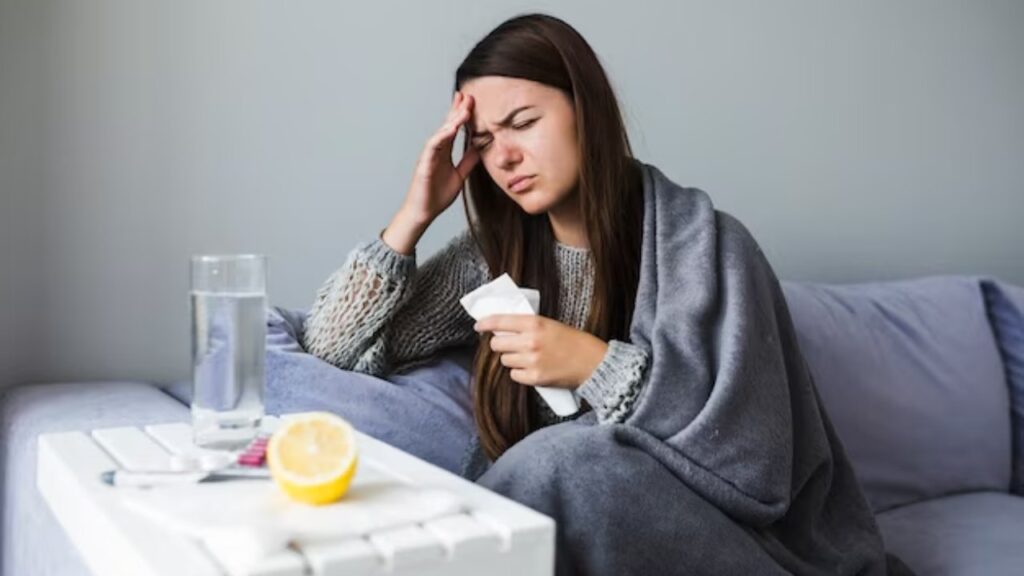
While vitamins are essential for our health, consuming too much can lead to adverse effects. Also, high doses of certain vitamins can interact with certain medications, potentially leading to health complications.
Here are some side effects you may face from overconsumption of the above vitamins.
| Nutrient | Risks of Overconsumption |
| Vitamin A | coarse hair, partial loss of hair, cracked lips, dry skin, weakened bones, headaches, and liver damage. |
| Vitamin B Complex | nerve toxicity, jaundice, liver toxicity, nausea, and digestive issues |
| Vitamin C | stomach cramps, diarrhea, and kidney issues |
| Vitamin D | headache, nausea, vomiting, diarrhea, fatigue, weakness |
| Vitamin E | blood thinning, increased risk of hemorrhagic stroke |
| Vitamin K | thrombogenesis and hemolysis |
| Iron | dizziness, headache, convulsions, chills, fever, and drowsiness |
| Omega 3 | low blood pressure, thinning of blood, excessive bleeding or bruising |
| Magnesium | lethargy, facial flushing, diarrhea, nausea, stomach cramps, vomiting, depression, muscle weakness |
| Calcium | constipation, dry mouth, a continuing headache, increased thirst, irritability, loss of appetite, depression, a metallic taste in the mouth, and fatigue |
Final Words
What vitamins should I take daily for a woman? You may take several vitamins that can help you maintain good health, such as vitamins A, B, C, K, D, E, calcium, magnesium, and more.
However, take these vitamins under the guidance of a healthcare professional to ensure that you consume the right type and dosage. It will help you reap all the benefits without any adverse effects.
Vitamin MD offers personalized supplement packets for immune health, energy boost, and general well-being. So, grab yourself one ASAP.



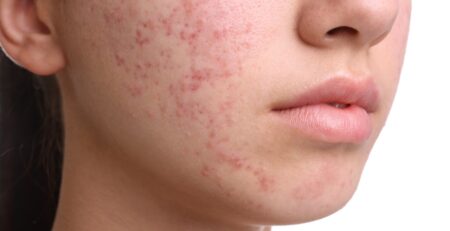
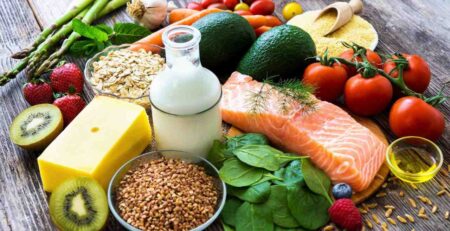
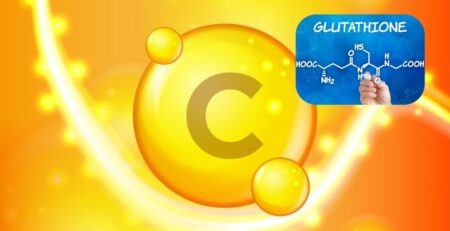
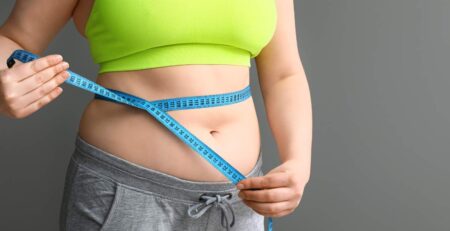
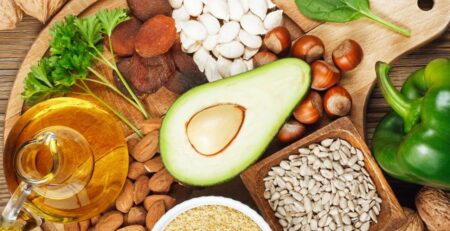



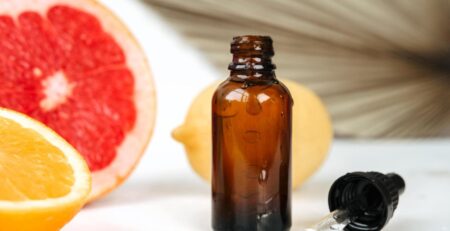
Leave a Reply